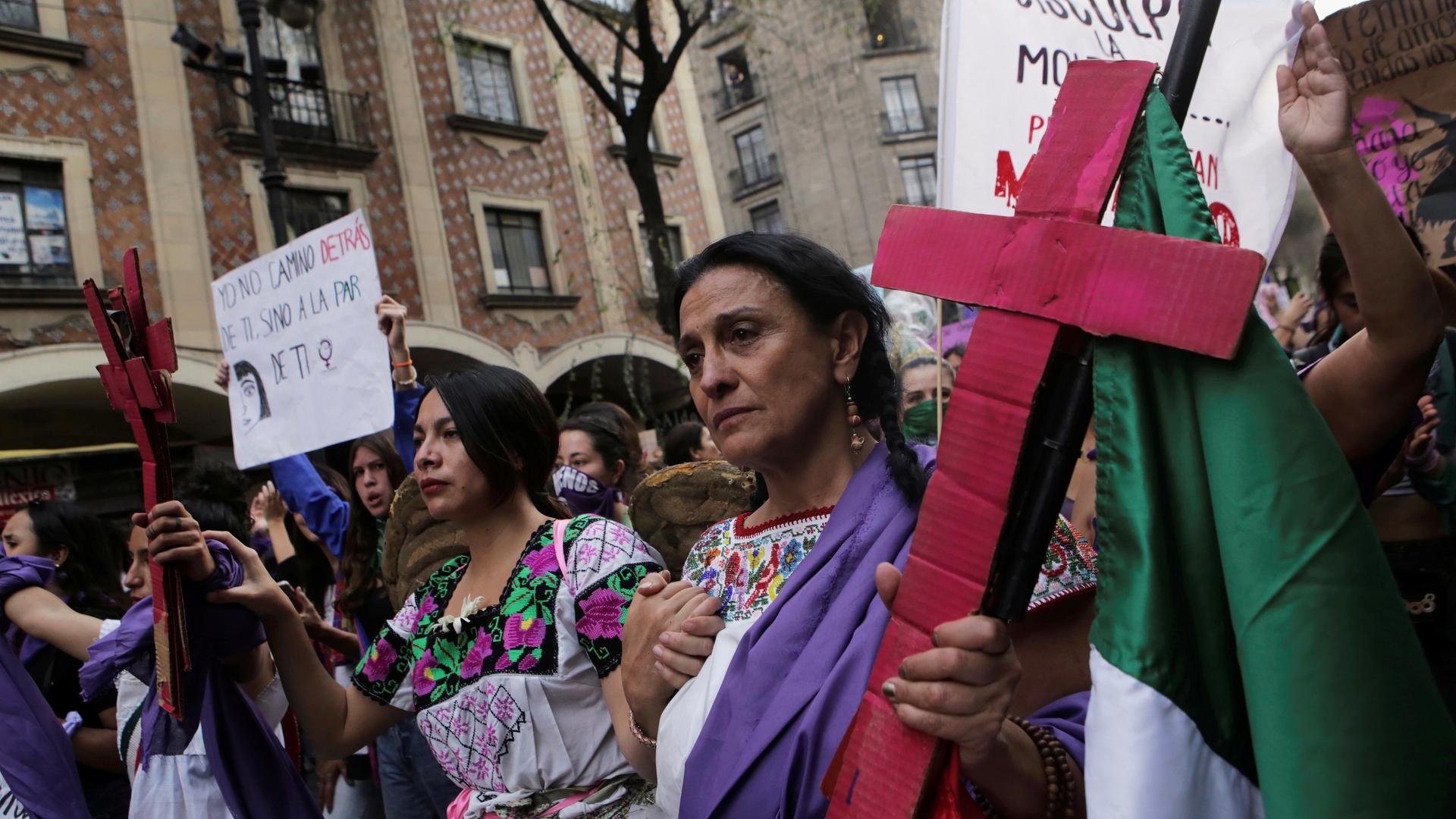Women in Mexico take to the streets to protest femicide
In Mexico, women are having a historic moment. On Sunday, International Women’s Day, tens of thousands took to the streets to demand an end to gender-motivated violence. Many are also following up this past weekend’s action by another form of protest Monday — staying home, not going to work, disappearing from public life.
The idea of women striking has existed for years in different parts of the world, but this year in Mexico, it’s taken on a new life with the horrific, back-to-back murders of a young woman and a 7-year-old girl.
Related: Women’s shelters in Mexico struggle to survive amid rise in femicides
Véronica Berber Calle is a criminal attorney who works on human rights topics in Mexico City. She says the strike is meant to show just how exasperated women are by the daily aggressions and violence they suffer, and the lack of attention to these issues.
Support for the strike has cut across class lines. Government and business officials stood behind it. The mayor of Mexico City told the city’s 150,000 female workers they could stay home although they wouldn’t be paid. Walmart said it would allow its female workers time off to join the strike. So did other big companies.
One business group said the strike would cost Mexico’s economy more than a billion dollars.
Related: ‘Die, bacteria, die’: Mexican nurses croon in hand-washing PSA video
And if Monday’s strike is about showing what life in Mexico looks like without women, Sunday was the opposite. Tens of thousands of women took to the streets in Mexico City and across the country for International Women’s Day.
There were young women like Mariana Hernández. She’s 23 and a college student.
She says she wants to feel safe and for her parents not to worry if something bad will happen to her after class. And like a lot of young women, she was here with her mom — Raquel Rochalo, who says the growing feminist movement is creating change even at home.
She says her son and husband are more aware, sensitive. This is the first time Rochalo has participated in a march on International Women’s Day.
“I feel very proud to be here,” she said. “Emotional. For the girls who have been raped and killed, we have to unite.”
To listen to the full story, click the audio player above.
